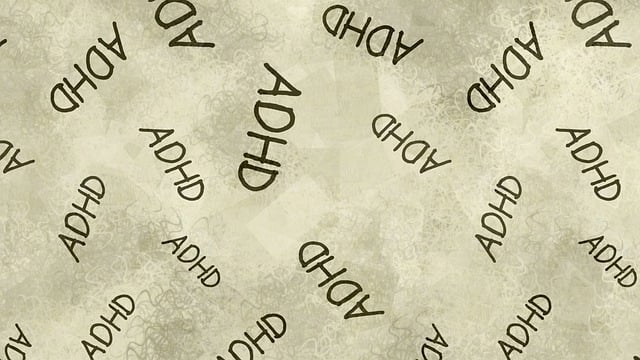Lafayette Anger Management Therapy employs a comprehensive risk assessment process using Mind Over Matter Principles to identify and mitigate potential hazards. Therapists conduct client assessments, employ Conflict Resolution Techniques, Self-Awareness Exercises, Mental Wellness Journaling, and the Mental Wellness Podcast Series to foster emotional well-being and prevent harmful behaviors. Through evidence-based strategies, action plans are created, categorized by risk severity, and regularly reviewed, ensuring dynamic interventions for enhanced community safety and mental wellness.
Risk assessment and harm minimization are vital components in creating safe communities. This article explores comprehensive strategies, including key roles like Lafayette Anger Management Therapy, for identifying and mitigating potential hazards. We delve into practical approaches such as harm minimization planning to foster secure environments. By understanding risk assessment techniques and implementing effective action plans, we can significantly reduce vulnerabilities and promote well-being.
- Understanding Risk Assessment: Identifying Potential Hazards and Vulnerabilities
- Harm Minimization Strategies: Practical Approaches for Safe Environments
- The Role of Lafayette Anger Management Therapy in Risk Mitigation
- Creating Comprehensive Action Plans: Steps Towards a Safer Community
Understanding Risk Assessment: Identifying Potential Hazards and Vulnerabilities

Risk assessment is a fundamental process in identifying potential hazards and vulnerabilities within any environment, be it a workplace, school, or even a therapeutic setting like Lafayette Anger Management Therapy. It involves a systematic analysis of factors that could cause harm to individuals or property. By thoroughly understanding this process, organizations can better prepare for unforeseen circumstances and implement effective strategies for harm minimization.
At the core of risk assessment lies the application of Mind Over Matter Principles, which encourage a proactive approach to safety. This includes identifying risks associated with human behavior, structural deficiencies, environmental factors, and more. For instance, in the context of Lafayette Anger Management Therapy, understanding client backgrounds and behaviors is crucial. Through comprehensive assessments, therapists can uncover underlying triggers, emotional vulnerabilities, or past traumas that may contribute to anger-related issues. Subsequently, this knowledge allows for the development of tailored interventions and Community Outreach Program Implementations aimed at fostering resilience building among participants.
Harm Minimization Strategies: Practical Approaches for Safe Environments

Harm Minimization Strategies play a pivotal role in creating safe and supportive environments, particularly in contexts like Lafayette Anger Management Therapy. These strategies are practical tools designed to anticipate and mitigate potential risks, fostering an atmosphere conducive to emotional well-being and growth. By implementing these approaches, therapists can effectively navigate challenging situations, such as anger management issues, and promote positive outcomes for their clients.
One key strategy is incorporating Conflict Resolution Techniques that encourage open communication and peaceful dispute settlement. Additionally, Self-Awareness Exercises empower individuals to recognize and manage their emotions, fostering self-control and reducing impulsive behaviors. For a more holistic approach, Mental Wellness Journaling Exercise Guidance can help clients track their thoughts, feelings, and progress, enhancing their self-reflection capabilities and promoting emotional regulation.
The Role of Lafayette Anger Management Therapy in Risk Mitigation

Lafayette Anger Management Therapy plays a pivotal role in mitigating risks associated with anger and aggression. Through evidence-based strategies, individuals learn to recognize and manage intense emotions effectively. This process involves exploring underlying triggers, cultivating empathy for oneself and others, and adopting healthy coping mechanisms. By participating in therapy, clients develop valuable skills that foster better relationships, enhance emotional intelligence, and reduce the likelihood of harmful behaviors or decisions driven by anger.
Incorporating empathy-building strategies within Lafayette Anger Management Therapy is a key component. These techniques encourage individuals to understand their own feelings while also recognizing the perspectives of those around them. Such an approach prevents burnout, promotes mental wellness, and strengthens interpersonal connections. Moreover, integrating these skills into everyday life through our Mental Wellness Podcast Series Production can further reinforce positive changes, ensuring sustained well-being and improved interactions in various settings.
Creating Comprehensive Action Plans: Steps Towards a Safer Community

Creating comprehensive action plans is a vital step in risk assessment and harm minimization, aiming to foster a safer community for all, including those seeking Lafayette Anger Management Therapy. These plans are meticulously designed to address potential hazards and promote positive outcomes by implementing targeted strategies. The initial phase involves identifying key risks and triggers through thorough analysis, incorporating insights from experts like crisis intervention guidance professionals and mental wellness specialists.
Once identified, these risks are categorized based on their severity and likelihood of occurrence. From there, tailored interventions are developed, including Mental Wellness Journaling Exercise Guidance to help individuals process emotions effectively. Positive thinking techniques are also integrated to encourage resilience and proactive coping mechanisms. Regular reviews and adjustments ensure the plan remains dynamic, adaptable, and responsive to evolving needs, ultimately enhancing community safety and well-being.
In conclusion, effective risk assessment and harm minimization planning are paramount for creating safe communities. By understanding potential hazards and vulnerabilities through comprehensive evaluations, organizations like Lafayette Anger Management Therapy can implement practical strategies to mitigate risks. These approaches not only foster a safer environment but also empower individuals and communities to navigate challenges proactively. Through structured action plans, we can collectively work towards minimizing harm and enhancing overall well-being.










